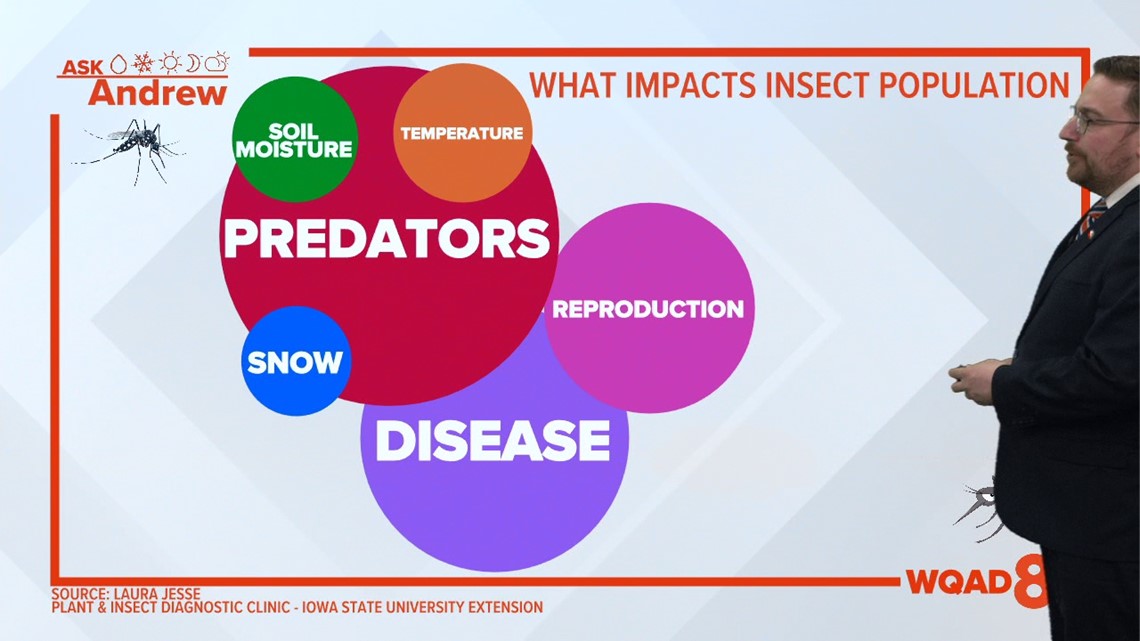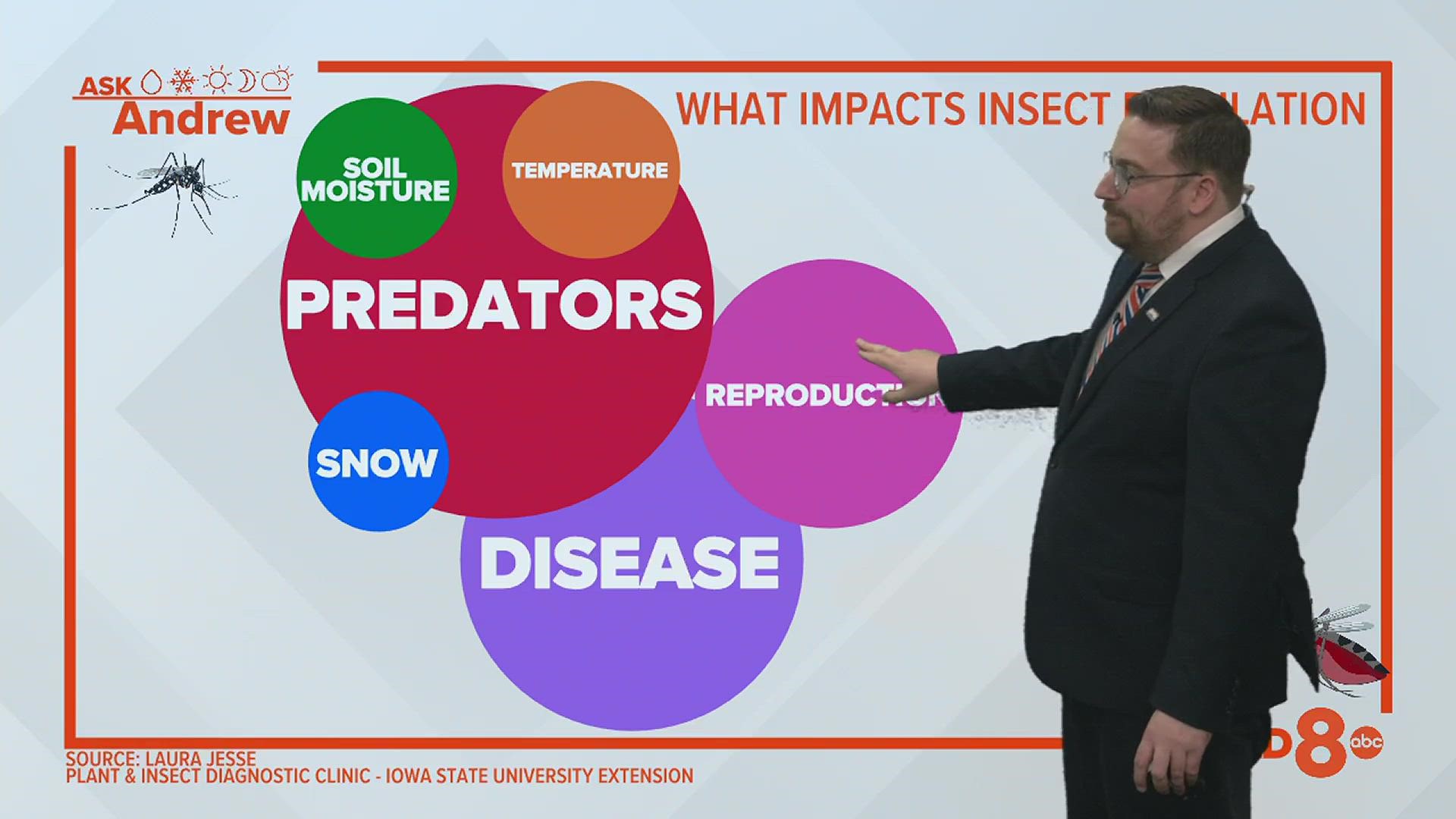MOLINE, Ill. — It won't be long until we hear the crickets chirping on a warm, summer evening. Along with those crickets will be the usual pests, mosquitoes, gnats, and other flying insects.
This winter has been really easy, almost too easy, both in terms of cold and snow. Could that mean we are in for an armageddon bug season once things warm up? Let's dig in.
I'm no bug expert. That's why we are getting some help from our friends at the Iowa State University Extension, who had some insightful information for us to share. You can also reference a VERIFY story that Meteorologist Morgan Strackbein joined me on, too.
According to Laura Jesse, with Plant and Insect Diagnostic Clinic at the Iowa State University Extension, the weather is only one small factor that determines how large or small an insect population will be the following summer.
"We say 'it depends' a lot, which may sound like we have no clue but the reason we have no clue is that it is really complicated," said Jesse. "OK, it does mean we have no clue but there are good reasons we don't. For instance, how an insect is affected by the winter depends on where they are in the environment. Insects like bagworms and praying mantids that overwinter as eggs above ground and are highly exposed on branches may do better if the milder conditions continue."


Very warm days during the winter, like the ones we've seen lately, can cause insects to become active much earlier than normal, depleting their energy reserves because food is still not yet readily available.
Soil moisture can also be another factor that impacts insect survival. If conditions are too dry, insects can dry out and die.
When focusing on the weather impacts, Jesse says spring will be a bigger factor than winter.
"When spring does arrive and insects resume activity, the effect of local weather conditions at the time of reproduction (egg laying and emergence of first instar offspring) will probably overshadow any population changes that took place during the dormant period of winter," Jesse said.
Have a question that you would like me to answer for an upcoming Ask Andrew segment? Submit it, here!

